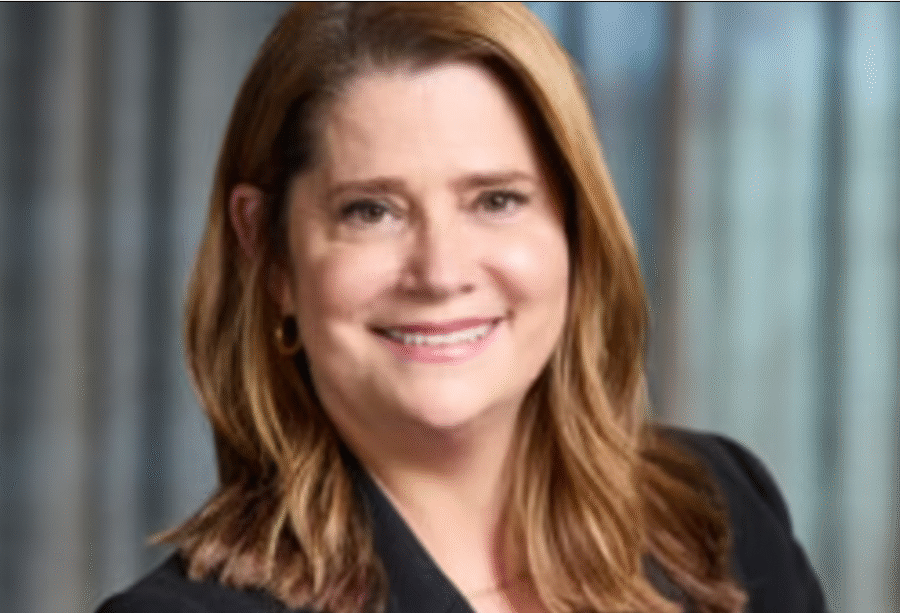Australian media group’s outgoing chair seeks compensation if gambling ads are banned

Australian media group Nine Entertainment said taxpayers should compensate domestic media firms if a federal gambling advertising ban proceeds, warning that uneven rules could favor large global tech platforms, according to The Canberra Times.
Nine Entertainment Co. Holdings Limited, an Australian publicly listed company publishing on digital media under the Nine brand, has been in talks with the government about potential restrictions.
Outgoing Nine Chair Catherine West told shareholders at the company’s annual meeting that any ban should apply evenly across all sectors.
“If we are banned from having gambling advertising, there’s two things we would ask for,” she said. “Yes, some type of compensation, some type of some other reduction somewhere else, but most importantly, that the gambling ban is fair across all sectors.”
West said excluding tech platforms would shift advertising revenue offshore.
“Our biggest plea is make it fair across the board, and don’t disadvantage responsible Australian media companies and allow a gambling free-for-all in terms of the ad tech platforms,” she added.
According to Nine, gambling advertising represented a small and declining share of the company’s revenue.
Polling has shown about three in four Australians support a ban on gambling ads, though the Albanese government has yet to decide on proposals from a major inquiry into gambling harm.
West said Nine would comply with any rules.
“We believe that gambling across the society is a collective responsibility for all stakeholders,” she said.
Abi Bray brings strong researching skills to the forefront of all of her writing, whether it’s the newest slots, industry trends or the ever changing legislation across the U.S, Asia and Australia, she maintains a keen eye for detail and a passion for reporting.
Verticals:
Sectors:
Topics:
Dig Deeper
The Backstory
Why Nine raised the stakes now
Nine Entertainment’s push for compensation if Canberra bans gambling advertising arrives as a broader rethink of how betting is marketed and taxed gains speed across the region. At Nine’s annual meeting, outgoing chair Catherine West argued any crackdown that spares global tech platforms would tilt the ad market against local publishers. Her comments echoed a long-running concern for “competitive neutrality” in Australia’s media economy, where traditional outlets are regulated more tightly than the platforms that distribute and monetize their content. The backdrop: strong public sentiment for reform and an unresolved federal response to proposals from a parliamentary inquiry into gambling harm. The political calculus is simple. Polls show broad support for a ban, but the implementation choices will determine who pays and who benefits. For Nine and its peers, an uneven rule set could accelerate revenue leakage offshore. That risk is why the company is signaling it would accept tighter limits if they apply evenly and, failing that, wants offsetting relief. Canberra has heard versions of this before. The tension between principles and practical enforcement is likely to shape whatever policy emerges.
West’s remarks, first reported by The Canberra Times, come as the government weighs timing and scope. A uniform, platform-agnostic ban would be the cleanest to explain but the hardest to enforce across walled gardens and foreign platforms. A partial ban could be faster to implement but easier to evade. Either choice carries budget, industry and political trade-offs.
The Canberra Times summarized the compensation argument as a hedge against asymmetric rules and revenue flight. What Nine wants most is clarity on how any prohibition would handle digital intermediaries that increasingly dominate ad spend.
Australia’s enforcement posture is getting sharper
Even before Parliament decides on advertising, regulators have been tightening compliance against unlicensed operators. The Australian Communications and Media Authority this month ordered internet providers to block seven more illegal gambling sites, including Crown Gold and Malina Casino. Since late 2019, ACMA has blocked 1,338 illegal gambling and affiliate websites and reports roughly 220 illegal services have exited the market since 2017. Blocking is not a cure-all, but it signals a willingness to use available tools to curb harm and reclaim regulatory ground. For legal media sellers, that matters: suppressing black-market supply can reduce the pressure to rely on aggressive advertising to defend market share, while also curbing consumer risk that draws political scrutiny.
The enforcement focus also underscores why the “fair across the board” standard is hard to achieve in practice. Licensed media companies face immediate compliance checks. Global platforms and offshore sites, by contrast, can be harder to police. That asymmetry raises the stakes for how a ban is drafted and enforced—whether by licensing conditions, content codes, platform duties of care or direct prohibitions.
Platforms, politics and a porous digital border
The Philippines is confronting the same platform friction from a different angle. Despite recent payments rules and a ban on outdoor promotions, advocacy groups say gambling ads continue to surface on major social media and messaging apps. Inside Asian Gaming reports mounting pressure on PAGCOR to curb promotions on Meta, Google, YouTube, Viber and X. TikTok has suspended such ads, but others allow them for authorized advertisers. Lawmakers have floated a blanket prohibition modeled on tobacco restrictions, though the government has not endorsed a total ban. The Philippine debate highlights how platform policies and national rules can clash, leaving regulators to choose between incremental fixes and sweeping bans that are hard to implement without platform cooperation.
For Australia, this is an instructive caution. If Canberra targets broadcast and local digital inventory while platforms remain comparatively open to authorized gambling advertisers, money and marketing may migrate. That would validate Nine’s warning about uneven rules and could undercut domestic compliance incentives. Conversely, if platforms face similar restrictions, enforcement costs and legal questions rise, particularly where services are headquartered abroad.
Tax, community benefit and the search for balance
Other jurisdictions are testing fiscal levers to balance consumer protection with industry economics. In New Zealand, the government revised its proposed online casino regime to direct more money back to local groups. The bill would lift offshore gambling tax to 16 percent from 12 percent, earmarking the extra four points for community funding. The aim, as Inside Asian Gaming reports, is to answer public feedback and preserve the country’s longstanding principle that gambling should support community benefits. A two-year post-implementation review is planned to assess impacts. The policy does not change harm minimization rules but reframes the social license debate: if the state allows online gambling, communities should see tangible returns.
Operators, for their part, adjust to protect demand. In Colombia, after a 19 percent VAT on player payments took effect under a temporary decree, Stake moved to blunt the pain. The company introduced a bonus to compensate users for VAT deductions, essentially absorbing the tax as a marketing cost. Stake’s VAT cashback promotion shows how quickly firms recalibrate offers when taxes or fees hit deposits. Such tactics keep customers engaged but may compress margins, especially if layered atop tighter advertising rules in other markets.
Legislative caution and the cost of unintended outcomes
The United States offers yet another lens on pacing. In Mississippi, a gambling state with deep casino ties, lawmakers remain wary of expanding to mobile wagering. The Senate’s gaming chair warned that online sports betting would not drive tourism or capital investment—the original rationale for legal gambling—despite the House signaling momentum for a 2025 bill. Mississippi’s slow-walk underscores two points relevant to Australia’s ad debate. First, perceived economic benefits drive political support; if reforms appear to shift value to platforms or out-of-state actors, resistance grows. Second, once digital channels open, rebalancing the regulatory mix—advertising, taxation, harm controls—gets harder, not easier.
For Canberra, that means the design choices matter as much as the headline ban. A uniform approach that binds broadcasters, publishers and platforms reduces arbitrage but demands strong enforcement and likely coordination with tech firms. A partial ban may be faster but could redirect spend to less regulated channels, undermining harm goals and the domestic media base. Policymakers have options—platform duty regimes, equal rules on ad placement, carve-outs tied to harm measures, or fiscal offsets that mirror New Zealand’s community funding model—but each path shifts costs among consumers, operators, tech intermediaries and local media.
The stakes for Australia’s media market
Nine’s compensation ask is as much about predictability as it is about money. Media companies plan around ad categories that are cyclical and politically sensitive. If gambling ads shrink or disappear, some outlets will backfill; others, especially in sport-heavy programming, will struggle. ACMA’s ongoing blocks show the regulator can move decisively against illegal supply, but the larger challenge is closing loopholes that steer advertising offshore. The Philippines’ platform struggle and New Zealand’s community-first funding pivot outline the trade space: how to balance harm reduction, economic fairness and practical enforcement in a market where audience attention and ad dollars can cross borders with a click.
Whatever the government decides, the implementation timeline, platform obligations and treatment of authorized online operators will determine whether reform levels the field or simply redraws it. For domestic media, the difference could be measured not just in lost revenue, but in bargaining leverage with platforms that already dominate digital ad flows.







